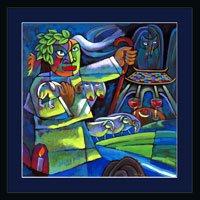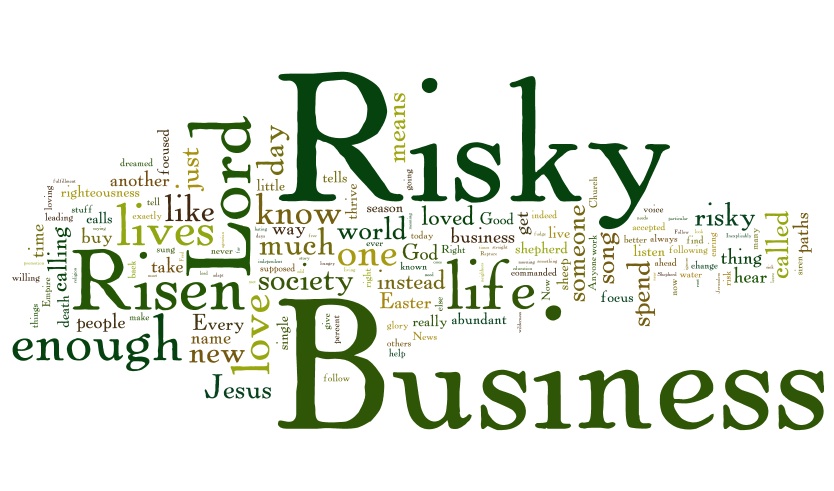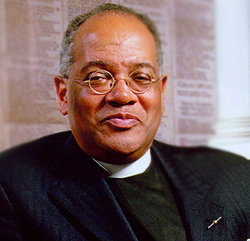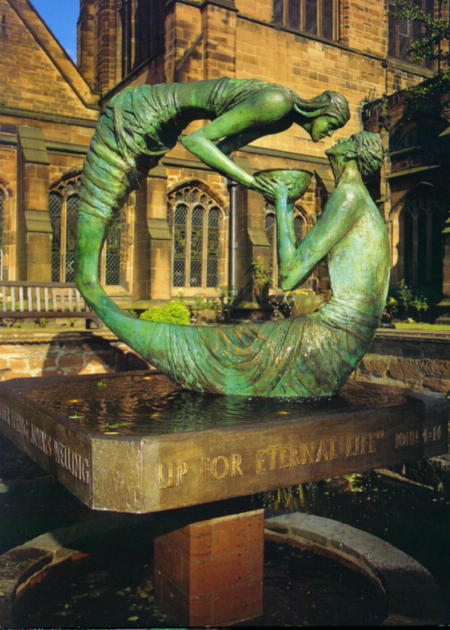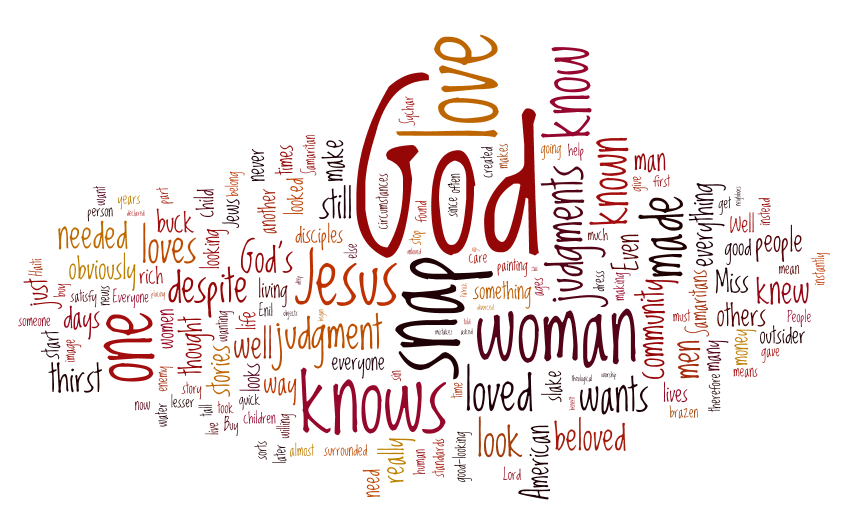Sermon preached at the Easter Vigil, 19 April 2014
Rosebud Episcopal Mission (Western side)
Bishop Jones Building, Mission, S.D.
The Rev. Dr. Lauren R. Stanley
(Sung, from the Exultet)
How blessed is this night, when earth and heaven are joined, and man is reconciled to God.
This is the night, my friends, THE night, when death lost its sting, its hold, its final grip on us.
This is an incredible night, the night when God reached down from heaven and overcame all of the world’s struggles, all of the world’s resistance to God’s love, and brought God’s love back into the world.
We know all this.
Because we know this story.
We know the story of Jesus’ birth.
We know the story of Jesus’ life.
We know the story of Jesus’ death.
We know the story of Jesus’ resurrection.
For us, it is our theme in glory, that old, old story of Jesus and his love.
We know all this, and we take it for granted, and as a result, Easter becomes more a celebration of family and flowers and good food and for some, a four-day holiday in which to bask in the sunlight … without ever realizing the power, the surprise, the audacity of this night.
Face it: We are not, on this holy night, filled with despair, because for us, the ultimate story of love has already come to an end.
We are not Mary Magdalene and the other Mary, stumbling through the dark hours of the early morning, filled with grief and despair, on their way to the tomb so they could properly care for the one whom they thought would save the world.
For far too many of us, there is no shock for us, no awe.
Because for far too many of us, this is, alas, just another old story, one that we have heard all of our lives. It is, for too many of us, just like an old, favorite movie that we watch over and over again, knowing every line of the script, knowing who is hiding behind which doors, with all the suspense gone.
We know the end of the story, and so for far too many of us, this is just another night.
But let me assure you: This is NOT just another night.
This is the night, the night when earth and heaven are joined, and man is reconciled to God, and death is defeated, and love reigns triumphant!
Picture this:
Mary Magdalene, one of Jesus’ disciples – and yes, she was a disciple, despite the fact that she is not named as one in the male-dominated world of the days when our Lord and Savior walked the earth – Mary Magdalene and the other Mary (and to be honest, we aren’t certain which other Mary) are on their way to the tomb.
It is dark.
It is probably cold (Jerusalem sits atop a small mountain, about 2,500 feet above sea level, the same elevation as the Rosebud, and we all know how chilly it can get here in the mornings).
They are grieving, these two women. The man they loved – not physically, I’m not pulling a Dan Brown here; no, they loved Jesus with all their souls because Jesus loved them for their souls – was dead.
They were there when he died. They witnessed that awful death.
They were there when he was taken down from the cross, his body broken.
They were there when he was laid in the tomb, hastily buried because it was the day of Preparation for the Feast of the Passover.
They were there when the stone was placed in front of the tomb, to keep anyone from stealing Jesus’ body in order to make the ridiculous claim that he was brought back from the dead.
And now they were on their way, to care for their Lord’s body properly, to make sure he was anointed with the right oils and incenses, to make sure he was wrapped properly in burial shrouds.
And suddenly …
Suddenly …
There was a great shaking of the earth!
And there was an angel – an angel of the Lord!
And that angel moved the stone from the entrance to the tomb!
And then he sat on it!
The guards posted at the tomb were so scared they shook and became like dead men (I’m guessing this means they fainted straight away).
But the women?
Did they faint?
No, they stood their ground.
Terrified they might have been, but they stood their ground nonetheless.
And the angel of the Lord said to them, “Do not be afraid.”
(Isn’t that soooo God-like? Isn’t that what God always has his angels say, because God knows that angels can be very frightening messengers?)
And then the angel of the Lord gives them the very best news of their lives, the news that shocks them, surprises them, has them in complete and total awe:
He is not here; for he has been raised, as he said.
What?!?!
He’s not there?!?!
He really and truly has been raised?!?!
Our Lord, our leader, our teacher … is not here?!?!
With some fear and great joy, the women turn around to tell the other disciples, to carry to them the rest of the story: Go tell the others to go to Galilee, just like Jesus said.
And just as they have started running, who appears right in front of them?
Jesus!
The Risen Lord!
Right there! With them!!!
He, too, tells them: Do not be afraid. (I am telling you, if you ever get a message that begins, “Do not be afraid,” you know you’re in the presence of the Lord.)
And he tells them, “Go and tell my brothers to go to Galilee; there they will see me.”
Can you imagine what that must have been like?
Can you imagine what Mary Magdalene and the other Mary felt like in that moment?
Sure, we knew what would happen. We’ve seen this movie a thousand times; we know the ending, and we are not surprised.
But those two women?
They had their socks knocked off!
They were filled with shock and awe and delight and hope and joy beyond words!
Because this wasn’t some old movie for them. This wasn’t some repeat.
This was good news … no, it was awesome news!
This was the Best. News. Ever!
Jesus had defeated death!
He was back!
He was risen!
And they Could. Not. Wait. To tell the story!
My friends … I know we’ve all been through this before. That’s there’s nothing new to this story, nothing to see here, move along, move along …
But the fact is, we should be surprised.
We should be filled with awe. And joy. And delight. And most of all, with hope.
Because this story? It is our story.
And it is one worth telling, over and over again, to everyone who has ears to hear and hearts to listen.
Please, I beg of you:
Be shocked.
Because God has fulfilled God’s promise to us.
Be awed.
Because God did what had never been done before – defeated death.
Be filled with hope.
Because what God did for Jesus, God does for us.
Those two women? They got it. They got that this was good news.
And they told that story, far and wide.
And across the centuries, they are asking us to do the same.
We, the present-day disciples, are called to do this:
To go into the world … and tell the story …
That old, old story of Jesus’ love.
(Sung, from the Exultet)
How blessed is this night, when earth and heaven are joined, and man is reconciled to God.
Alleluia, Christ is risen!
The Lord is risen indeed. Alleluia!!









